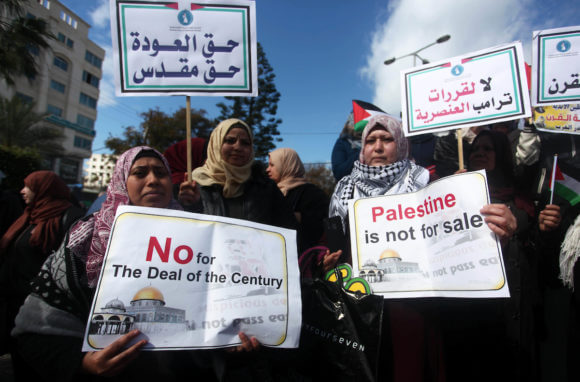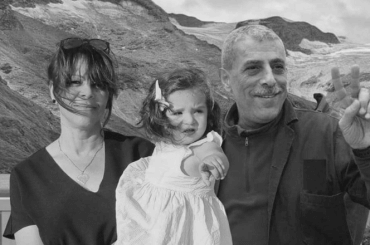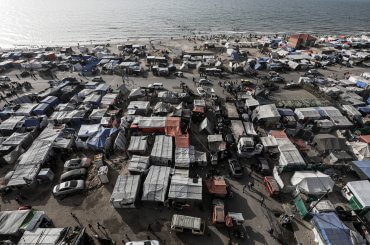International solidarity with the Palestinians and their cause began to decline noticeably and gradually after the Madrid Peace Conference in 1991, which presented Israel to the world as a normal and legitimate country, striving for peace with a Palestinian and Arab blessing. The conference was hosted by Spain with U.S. with Soviet Union involvement. The U.S. delegation was led by then President George H.W. Bush and Secretary of State James Baker who sought redlines from Israel on settlement activity during their administration, and aimed to forge a broader agreement that would normalize Israel’s relations with the world, not just the Arab world.
Going into Madrid, Israel had a few preconditions. With support from the U.S., the United Nations cancelled a General Assembly Resolution (UNGA resolution 3379, passed in 1975), which stipulated Zionism is a form of racism. It was revoked when a separate resolution was passed (UNGA resolution 86/46) 45 days after (yes, after only 45 days) the Madrid Peace Conference.
Concretely, the conference established tracks for Israeli-Palestinian discussions and Israeli-Jordanian discussions and paved the way for what became the Oslo Accords from 1993 to 1995.
Looking back at this legacy, it is remarkable that while the South Africans were well on their way to ending apartheid, which also started in 1948, the Palestinian leadership, with or without intention, legitimized apartheid in their country when they signed the Oslo Accords. This agreement formalized Israel’s presence as an occupying power and established the Palestinian Authority as an administration over the Palestinians in the West Bank and Gaza.
A more recent development is that even the signers of Oslo are acknowledging it led nowhere, at least nowhere near the promises it made to Palestinians to end the occupation and establish a state. Mahmoud Abbas, today’s president of the Palestinian Authority and head of the PLO, was the Palestinian signer of the Oslo Accords while the former Chairman of the PLO Yasser Arafat was the head of the delegation.
Abbas cautioned in 2015 at the United Nations General Assembly that without Israel holding up its end of the agreement, he was rapidly moving towards heading “an authority without real powers.” In 2017 at the same forum he warned his government had become “an Authority without any authority,” while Israel’s occupation continued “without cost.”
He repeated this sentiment again in 2018 at the UN, adding the conclusion “We are even working for the occupation as its employees.”
“Israel,” he charged, “has transformed the occupation from a temporary situation, as per international law, into a situation of a permanent colonization of territories that it has occupied since 1967.”
“It was supposed to be temporary; however, it has become permanent,” Abbas added.
Today Palestinians face a greater challenge, one that could end their cause, represented by the Deal of the Century. The decline in global solidarity with Palestinians has reached Arab countries, while the Israelis realize unprecedented diplomatic successes.
In light of this, the Palestinian leadership’s lack of tools to advocate and influence are visible. The strategy to internationalization of the Palestinian cause by trading of U.S. led negotiations with Israel for something more like the P5+1 framework failed, as did the strategy to isolate Israel in the region. This accelerated the decrease in the legitimacy of the PLO as the sole legitimate representative of the Palestinians, that is in the eyes of the Palestinians of the West Bank and Gaza Strip.
Most Palestinians saw the PLO as their sole representative in the past. Polls from the organization where I work, the Palestinian Center for Policy and Survey Research (PCPSR), showed 69% held this view in 2006 and in 2019 it dropped to only 54%.
In the latest PCPSR poll, around 58% of Palestinians oppose the two-state solution and only 39% support it. Another 37% said they prefer a one-state solution over a two-state solution. (Even so, not a single Palestinian political party has adopted one-state solution in their platform).
This loss of public trust coincides with the Palestinian Authority struggling to survive and faces the possibility of a collapse, where the consequences include security chaos– internal or against Israel– and armed conflict. Against this backdrop of instability Israel could exploit this situation. Against this backdrop Israeli settlers in the West Bank have reached more than 600,000, distributed across more than 140 settlement communities. If there were an outbreak of violence, a number of settlers are armed under the pretext of self-defense.
The Palestinian Authority has lowered Israel’s security cost and, consequently, given Palestinians a moribund government. It’s worth mentioning here that a majority (62%) of the Palestinians view the Palestinian Authority as a burden.
Even so, Palestinians fear an atmosphere of chaos and insecurity is likely to arise, and we fear after the collapse of the authority that is increasingly distracted, there will be no protection. One must not look further than Area C of the West Bank, or Palestinian communities that abut settlements, where the most vulnerable Palestinians experience home demolitions, evictions from their land, and settler violence committed with impunity.
The Palestinian leadership—which bears the responsibility of the accumulated failures—has to take a step back, exactly like what a speed racer does, in order to launch strongly. The public’s confidence in the leadership cannot be restored without serious intervention. We saw on two more recent occasions in the summer of 2017 in Jerusalem and in 2018 in Gaza, where mass protests led by the people created an environment where politicians yielded to the current of the public.
To that end, the public must restore Palestinian civil society organizations with the understanding that it can restore the function of the PLO, who should then reassert its role as an international representative, but from a position of democratically representing the public. This would include inviting the 2 million Palestinian citizens of Israel to join in the realization of a new strategy.
The leadership now, and without hesitation, has to take this step back and return the political situation as it was before the Madrid Conference and the Oslo Accords. This step backwards, just like launching an arrow is to stimulate and unleash the energies of all Palestinians, will reveal once again the racist face of Israel that the world does not see, or does not want to see.
The time has come to rely on ourselves to impose what we want through a national plan, and on a secondary level, invest in Arab and international positions that are supportive factors, not fundamentals. This could be done by taking the following steps, which would be the basis for ending the PA’s role and reforming the PLO:
1. The Palestinian Authority must collect arms from the Palestinian security services and hand them over to a third party such as the United Nations. (1) commit to a peaceful popular uprising; (2) be an act of good faith to encourage Israeli-Jews to join the movement.
2. After collecting arms, the Palestinian Authority must dissolve itself.
3. The PLO must apologize to the entire Palestinian public for the mistakes of the past in order to restore the public’s confidence.
2. The PLO should withdraw recognition of Israel.
3. The PLO should abandon the two-state solution, and adopt the strategy of establishing a single democratic state in historic Palestine.
4. The PLO must adopt peaceful popular resistance, represented mainly by marches and major sit-ins, civil disobedience and boycott.
5. The above actions should be in parallel to continued support of the BDS movement whose achievements the leadership did not support. Rather they tried to marginalize the movement, with irresponsible statements, including the president’s statement back in 2013 “We do not support the boycott of Israel” during his visit to South Africa. He has yet to revise his position.
6. Lastly, Palestinian must call on the United Nations General Assembly to reactivate its Resolution 3379, where Zionism was labeled a form of racism.
This is a path to establishing a single democratic state in historic Palestine, or alternatively, a path to reaching a two-state solution that is built off of the promises of international law, where Palestine will be based on 1967 ceasefire lines with a capital in East Jerusalem.
*Translated from Arabic into English by Ms. Dana Ammous



“a path to reaching a two-state solution that is built off of the promises of international law,”
It would probably be more stable if it were built on the promises of international law.
Sounds like a good plan for losing all major foreign aid (EU, Japan, etc), starting a new intifada (Hamas/PIJ/etc aren’t going to sit by as Palestinians are getting killed in “peaceful protests” and neither is Fatah, but whatever), getting the IDF to clamp down on the WB like in 2003 (in response to the violence), losing a few hundred thousand jobs (more with the knock-on effects of the violence to follow), causing anarchy in the West Bank (if there are no more PA police), and pushing at least several hundred thousand Palestinians to emigrate (loss of jobs, anarchy, violence).
How any of this leads to your intended end-goal is a bit dubious. What precisely in your plan is going to cause Israel to accept a single state? What would cause it to accept a two state outcome on the basis of your interpretation of international law?
It’s all nonsense. You don’t have the power to force your desired outcomes. You live in fantasy land.
I couldn’t agree more! Base your freedom struggle on values:
It makes no sense to set out a specific-to-1SS path (withdraw recognition of Israel, abandon the 2SS, advocate a 1SS and invite Palestinian Israelis to join the 1SS cause) and then – as a contradictory afterthought – casually suggest that the same path can also be used to realize a completely different 2SS.
Is there anyone who can bargain and speak on behalf of all black people or white people? Imagine if Apartheid South Africa said “We are for peace but black leadership refuses all of our generous offers.”
Peace process is a scam where somehow an entire Palestinian ethnic group is supposed to give up property and rights that they are supposed to have to get other property and rights that they are supposed to have, and all this would somehow legitimize Israeli ethnic cleansing and conquest.